Keeping up with the latest news can be challenging in our fast-paced world filled with endless information streams. Developing strategies to stay informed while avoiding media chaos requires careful selection of news sources and mindful consumption habits.
Digital news sources for real-time updates
The digital landscape offers numerous platforms for accessing current events instantly. Finding reliable sources amid information overload requires critical thinking skills and an understanding of media literacy. Creating a balanced information diet helps manage the constant flow of news while maintaining digital wellness.
Reliable news apps and their features
News applications provide curated content that can be tailored to personal interests while filtering out unnecessary noise. Quality platforms like Reuters offer fact-based reporting with minimal bias, helping readers practice mindful consumption. For comprehensive coverage of global events, users can find various specialized news aggregators available on https://www.comfusion.es/ that compile stories from diverse journalistic sources. These tools often include features such as customizable notifications, offline reading capabilities, and the ability to save articles for later review, making news management more efficient.
Social media platforms as news aggregators
Social media has transformed how we consume current events, serving as powerful content curation tools. Platforms like Twitter and LinkedIn can be configured to follow authoritative news outlets and journalists, creating personalized information streams. When using these platforms, implementing a strategic social media strategy is essential – creating lists of reliable sources, setting time limits for browsing, and actively questioning shared content helps combat media anxiety. Careful curation of social feeds can transform potentially chaotic media consumption into a valuable component of your information diet.
Traditional media still holds value
In today's digital age where media chaos and information overload are common challenges, traditional media formats continue to offer significant value for those seeking to stay informed about current events. Despite the rapid evolution of news consumption habits, established media channels provide structure and reliability that can help manage the overwhelming abundance of information available.
Quality news sources like print publications, television, and radio programming often employ professional journalists with training in factual reporting and journalistic integrity. These traditional formats can serve as anchors in your information diet, providing a foundation of reliable content amid the noise of constant updates.
Print publications and their online presence
Newspapers and magazines have adapted to the digital era while maintaining their commitment to in-depth reporting. Many respected print publications now offer robust online platforms that combine traditional journalism standards with digital accessibility. These hybrid models allow readers to benefit from thorough editorial processes while enjoying the convenience of digital delivery.
When selecting print publications, focus on those with established reputations for factual reporting. Platforms like Reuters and The Conversation offer thoroughly researched content that can help you understand complex issues. The digital extensions of print media often include features that enhance the reading experience, such as customizable news alerts for topics aligned with your specific interests.
Curating your selection of print media sources is an effective strategy for practicing media literacy and avoiding information overload. By identifying a few high-quality publications rather than consuming numerous lower-quality sources, you can develop a more focused and meaningful understanding of current events.
Television and radio news programming
Broadcast media remains a valuable component of a balanced information diet. Television and radio news programs often provide concise summaries of major events, making them efficient ways to stay informed when time is limited. These formats can be particularly helpful for getting quick updates without falling into the endless scroll behavior common with digital platforms.
Radio programming, including podcasts available through platforms like Spotify and Apple Podcasts, offers flexibility for busy lifestyles. You can consume audio news while commuting, exercising, or completing household tasks, making efficient use of your time while staying informed.
To maximize the benefits of broadcast media, apply mindful consumption practices. Designate specific time blocks for watching or listening to news programming using time management approaches. This structured approach helps prevent news anxiety while ensuring you remain knowledgeable about significant developments.
Diversifying your media consumption across different formats and perspectives enriches your understanding of current events. Including television and radio programming alongside digital sources creates a more comprehensive view and reduces the risk of echo chambers that reinforce existing beliefs.


